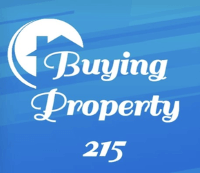Some people may wonder, What is a private landlord? A private landlord is typically an independent individual or a private company that owns residential or commercial property and rents it to tenants. Private landlords are distinct from public or social housing providers, which may be government agencies or non-profit organizations. Each functions off a different private landlord list with various responsibilities.
Private landlords can own properties, such as single-family houses, apartment buildings, or commercial properties. Landlords engage in renting or leasing these properties to individuals or businesses. They may be individuals who invest in real estate for rental income, property management companies, or even a real estate investment firm.
The overall relationship between private landlords and tenants is based on lease agreements or rental contracts, which outline the terms and conditions, including the amount and frequency of rent payments, property maintenance responsibilities, and other details.
What are the Expectations of a Private Landlord?
Private landlords have various expectations and responsibilities in managing rental properties and interacting with tenants. Here are some common expectations and responsibilities:
- Property Maintenance:
- Ensure that the house or building is well-maintained and safe for the tenants.
- Take care of repairs quickly and keep the property in good condition.
- Obey the Laws:
- Comply with local, state, and federal housing laws and regulations.
- Follow fair housing practices and never discriminate against any potential tenant.
- Provide a positive living environment, including access to necessary utilities.
- Lease Agreements:
- Put together clear and comprehensive lease agreements explaining terms and conditions.
- Clearly communicate lease details, including the rent amount, monthly due dates, and any other policies.
- Rent Collection:
- The responsibility of a landlord is to collect rent payments on time.
- Enforce late fees or penalties for overdue payments, as specified in the lease.
- Tenant Communication is Key:
- Maintain open communication with tenants to avoid any obstacles.
- Ensure to address tenant concerns or issues right away.
- Tenant Screening:
- Screen potential tenants to ensure they are qualified.
- Background checks, credit checks, and even references.
- Annual Home Inspections:
- Regular property inspections are essential to assess its condition and make any necessary updates.
- As the law requires, provide proper notice to tenants before entering the property—usually, 24 to 48 hours written notice.
- Must have Insurance and Rental License:
- Carry appropriate insurance coverage for the rental property.
- Encourage tenants to obtain renters’ insurance to protect their personal belongings; homeowners’ insurance only covers the property.
- The Responsibilities of Evictions:
- Follow legal procedures if eviction becomes necessary. Ensure you have your renter license and a copy of the lease.
- Understand and comply with eviction laws in your respective state.
- Financial Management:
- Keep accurate financial records related to the property, and submit these documents yearly with your tax statement.
- Budget for property expenses and plan for maintenance and repairs. Home repairs can arise out of nowhere and can be very costly.
- Community Relations:
- Be a good neighbor and maintain positive relationships with the community. If the neighbors have any issues, address things immediately.
- Plan Accordingly for Emergencies:
- Have a solid plan for responding to emergencies to ensure the proper safety of the home and tenants.
- Provide tenants with necessary emergency contact information.
It’s essential for private landlords to stay informed about local regulations, seek legal advice when needed, and aim to create a positive and well-managed living environment for their tenants and the community.
How to Locate a Private Landlord?
Finding a trustworthy private landlord is crucial to ensuring a positive rental experience. Here are some tips to help you locate a trustworthy private landlord:
- Online Listing Platforms:
- Use reputable online platforms and websites for property listings, such as Zillow, Apartments.com, or local real estate websites.
- Real Estate Agents:
- Work with a realtor who specializes in rental properties. They often have access to listings and can help you find reputable landlords throughout the community.
- Referrals Are Gold:
- Ask friends, family, or colleagues if they know of trustworthy landlords or have had positive experiences with rental properties in the area. The real estate industry’s referrals are gold because the trust has already been established.
- Local Newspapers and Community Boards:
- Check local newspapers, community bulletin boards, or neighborhood newsletters for rental listings by individual landlords. This old-school method of finding a house to rent is still productive today.
- Property Management Companies:
- Some private landlords hire property management companies to handle rental operations. You can inquire with these companies for available properties.
- Research the Landlord:
- Before contacting a landlord, try to gather information about them. Search for reviews online, check if they have a website, and look for any red flags. Some property owners are slumlords; try your best to avoid this circumstance.
- Meet in Person:
- When possible, meet the landlord in person during property viewings. This can help you assess their professionalism, gauge your comfort level with them, and provide a general idea of who you’re dealing with.
- Ask Questions:
- During meetings or communications, ask the landlord about their experience, policies, and how they handle maintenance and repairs. A responsive and transparent landlord is often a positive sign.
- Check the Lease Agreement:
- Review the lease agreement carefully. A well-drafted, clear lease with reasonable terms indicates a professional landlord.
- Tenant References:
- Ask the landlord for tenant references. Speaking to current or past tenants can provide valuable insights into the landlord’s reliability and responsiveness.
- Background Check:
- Just as landlords conduct background checks on tenants, tenants can also do some research on landlords. Check for any legal issues or complaints against the landlord.
- Visit the Neighborhood:
- Spend some time in the neighborhood where the property is located. Talk to neighbors and understand the community and the landlord’s reputation.
- Trust Your Instincts:
- Trust your instincts if something feels off or you have reservations about a landlord. It’s essential to feel comfortable and confident in your landlord-tenant relationship.
Remember that building a good landlord-tenant relationship is a two-way street. Communicate openly, be transparent about your expectations, and choose a landlord who aligns with your needs and values.
Craigslist Houses for Rent: Private Landlords
Using online real estate platforms like Craigslist to find houses for rent from private landlords can be convenient and straightforward, but it’s essential to exercise caution to avoid scams or fake listings. Here are some tips to help you navigate online platforms and find a legitimate rental property:
- Stick to reputable online platforms from companies you recognize for rental listings, such as Zillow, Apartments.com, or local real estate websites. These platforms often have measures in place to verify listings.
- Be careful of property listings that seem too good to be true. Such as low rents for desirable areas or individuals requesting payment before viewing the property. Verify the property’s details by checking information with multiple sources and using Google Maps or other tools to confirm the location.
- Request a copy of the lease agreement before signing anything. Please review the terms carefully to ensure they reflect your expectations.
Remember that while online platforms like Craigslist can be a valuable tool for finding rental properties, it’s vital to prioritize your safety and personal interests. If a deal seems too good to be true or if you encounter any suspicious behavior, consider seeking alternative listings/rentals from more trustworthy sources.
Are there Private Landlords that accept Evictions?
While private landlords might be willing to consider tenants with a history of eviction, it can be challenging to find such landlords. Landlords view evictions negatively because they indicate a previous failure to fulfill lease obligations. Many landlords prioritize tenants with a stable rental history to minimize the risk of future issues.
How to Become a Landlord?
Becoming a landlord involves a systematic process that includes financial planning, property acquisition, legal considerations, tenant management, and ongoing responsibilities. Initially, educate yourself on local landlord-tenant laws and fair housing regulations. Assess your financial situation to ensure you can afford the investment, considering property purchase costs, maintenance, and potential vacancies.
Once financially prepared, identify a suitable property, explore financing options, and decide on the legal structure for ownership. Prepare the property for rental by making necessary repairs and setting rental terms, including lease agreements and tenant rules. Market the property to attract potential tenants and implement a thorough tenant screening process to select reliable individuals.
Establish a system for rent collection, decide whether to manage the property yourself or hire a property management company, and ensure compliance with local laws and regulations. Obtain landlord insurance to protect your investment, promptly address tenant concerns and property maintenance issues, and maintain detailed records for financial and legal purposes. Learning about real estate markets and industry trends is essential for long-term success. Overall, the process involves a combination of financial diligence, legal awareness, and effective property management to become a successful landlord.
There are Advantages to Being Private Landlords
In conclusion, a private landlord is an individual or private entity that owns and rents residential or commercial properties. Operating independently of government or social housing programs, private landlords play a large role in the rental market, providing housing options for individuals and businesses.
The responsibilities of a private landlord include property maintenance, legal compliance, tenant communication, and overall property management. The relationship between private landlords and tenants is governed by lease agreements, and a successful landlord prioritizes transparency, open communication, and adherence to legal standards. As key contributors to the diverse landscape of rental housing, private landlords play a vital role in meeting the varied housing needs of communities.

Contact Us
We would love to hear from you! Please fill out this form, and we will contact you shortly.
